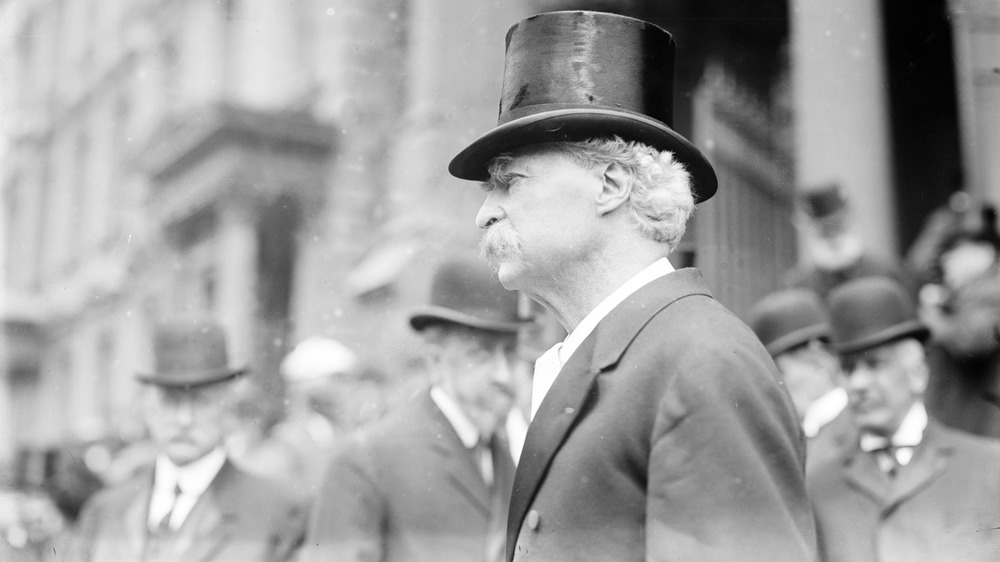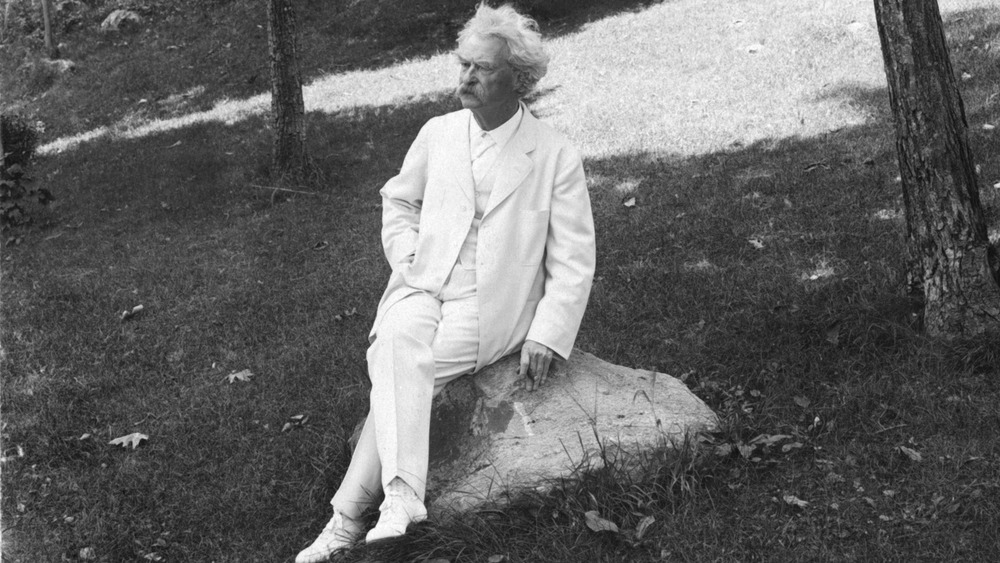The Truth About Mark Twain's Military Service
We may receive a commission on purchases made from links.
The creator of beloved characters Tom Sawyer and Huck Finn, Mark Twain used Hannibal, Missouri — the town where he grew up — as an inspiration for the settings of several of his books. The American humorist, novelist and journalist, born Samuel L. Clemens, lived an unusual life — fitting for a man born under Halley's Comet and who died 74 years later, during its return. "Clemens traveled the world and had many experiences as he passed from typesetter to river pilot, prospector, newspaper reporter, lecturer, author, publisher, businessman and family man," said The Mark Twain Museum's website.
Despite his accomplishments, Twain spent little time in school. His father died from pneumonia when Twain was 11. A year later, Twain became an apprentice printer at a Hannibal newspaper. He spent several years working as a printer, including a stint with his brother, Orion.
The Mississippi River beckoned in 1857 and Twain started an apprenticeship to become a steamboat pilot. He worked as a pilot until 1861 — the start of the Civil War, when traffic on the river was curtailed. Fun fact: Sam Clemens got his Mark Twain pen name from a term that represents two fathoms (12 feet), which is a safe water depth for a steamboat. Soon after the river closed, 25-year-old Twain enlisted in the war, a member of the pro-Confederate Marion Rangers. Although his family had owned slaves, he "didn't have strong ideological convictions about the war and probably enlisted with the militia primarily out of loyalty to his Southern roots," according to History.com.
Mark Twain's Short Career as a Soldier
Twain did not last long. He spent about two weeks performing drills as a second lieutenant when a rumor arose that Union troops under Gen. Ulysses Grant were coming. It was enough to cause the rangers, who had few supplies, to disband. "The desertion may have been prompted by fear of hanging or confiscation of family property," according to Newswise.
His account of that brief period, "The Private History of a Campaign That Failed," offers a fictionalized version of Twain's time as a soldier and the reasons why one would leave the militia. As Civil War Saga stated, Twain "defended his actions throughout the years by describing his confusion while enrolling and explained he was ignorant of the politics behind the war."
Twain ended up traveling west with his older brother, Orion, who became the territorial secretary of Nevada while he tried prospecting. When Twain failed to become rich, he tried reporting for a local newspaper. He would meet up with Grant eventually, however, as History.com relates. The two formed a friendship, and Twain published Grant's memoir in 1885. The book sold well enough that it helped propel the ex-president's widow out of poverty — her husband's bad luck with prior investments had lost much of their wealth. Twain fell into the same dilemma, going bankrupt in 1894. It would take years on the lecture circuit before he paid off his own debts.

